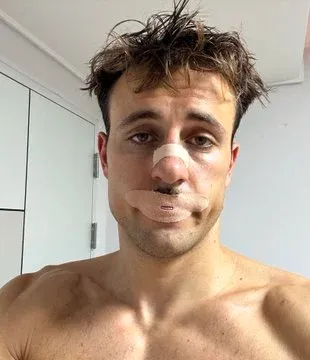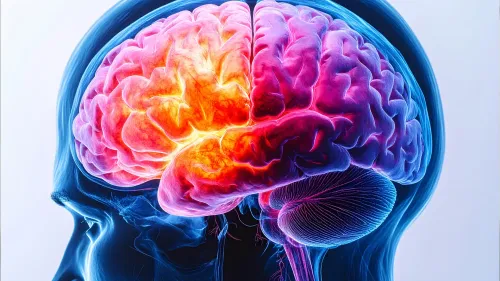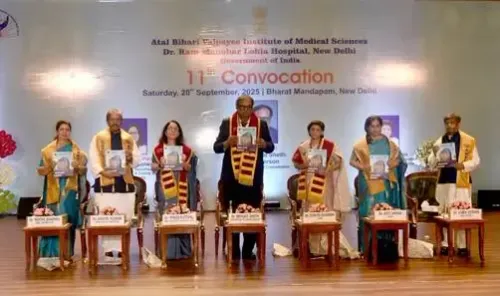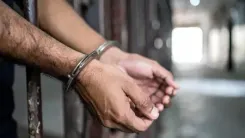Is the Social Media Trend of Mouth Taping During Sleep Dangerous?

Synopsis
Key Takeaways
- Mouth taping can pose serious asphyxiation risks.
- It is often linked to sleep-disordered breathing.
- Consult a healthcare professional before trying it.
- Research shows mixed results on its effectiveness.
- Serious nasal obstructions can worsen the risks.
New Delhi, May 22 (NationPress) Are you participating in the social media craze of taping your mouth while you sleep to promote nasal breathing? It’s vital to be cautious as this practice may lead to serious risks of asphyxiation.
Asphyxiation refers to a state where the body lacks sufficient oxygen, often resulting in difficulty breathing or even suffocation.
When the nasal passages become obstructed, individuals tend to switch from nasal to mouth breathing. This mouth breathing has been associated with various sleep-related issues, ranging from snoring to conditions like obstructive sleep apnoea, where breathing irregularities occur during sleep.
Recently, a trend on social media has led some people to tape their mouths shut at night to alleviate sleep-related breathing problems by discouraging mouth breathing.
Many social media influencers and celebrities advocate for mouth taping, claiming it results in improved sleep quality, better oral health, and even anti-aging effects.
According to Dr. Brian Rotenberg, an otolaryngologist and sleep surgeon at Western University in the UK, “Our findings indicate that sealing the mouth during sleep can be hazardous, particularly for those unaware of their sleep apnoea.”
“Such individuals may inadvertently worsen their symptoms, increasing their vulnerability to severe health issues like heart disease,” he added.
The research assessed 10 previously published studies involving a total of 213 patients, examining the potential advantages of mouth sealing using tape or devices like chin straps.
The study concluded that the practice could exacerbate pre-existing sleep-related breathing issues by limiting airflow, putting extra pressure on the respiratory system, and heightening the risk of suffocation in cases of nasal blockage. This research was published in the journal PLOS One.
Among the 10 studies, two indicated that for a specific group of individuals with mild obstructive sleep apnoea, mouth taping might show a slight improvement in sleep apnoea severity measures. However, other research found no substantial evidence supporting the effectiveness of mouth taping in treating mouth breathing, sleep-disordered breathing, or sleep apnoea.
Four out of the ten studies discussed the serious risk of asphyxiation posed by mouth sealing during sleep, especially for those whose mouth breathing stems from significant nasal airway restrictions.
Serious nasal blockages can arise from conditions like hay fever, chronic rhinitis, a deviated septum, sinonasal disease, or enlarged tonsils.









